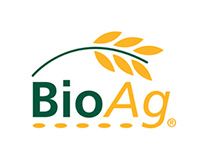Crop solutions
BioAg fertility programs produce living, healthy and balanced soil and improve the production and quality of yield and fertiliser use efficiency. Our programs aim for efficient nutrient delivery to improve plant resilience to stresses as well as increased yield and quality.
Programs typically incorporate a range of BioAg solid natural fertilisers and BioAg Liquid Microbial Fermented Cultures, as well as traditional inputs and micronutrients. They are customised for individual paddocks using advanced soil and tissue analysis.
Long-term Approach to Success
BioAg programs deliver year one nutrients and improved fertiliser productivity, while also taking a longer-term approach towards building the fertility of your farm.
By year two, your soil’s fertility will be increased rather than depleted, production is enhanced, crops and pastures are healthier and more resilient, and your entire system becomes more sustainable.
A biological system starts to become self-sustaining within three to five years, although you will begin to notice a visible difference in the health of your soil during the first year.
Sample Programs
BioAg fertility programs are available for a wide range of crop types and pastures and can be adapted for conventional and organic farming systems.
Our expert Area Managers and agronomists work with farmers to provide tailored fertility programs that consider the individual block, including its history and soil type, along with soil test results and the farmer’s yield and quality goals and budget.
In other words, we develop a fertility program for your farm that suits you, and helps your farm meet its full productive capacity.
Below we have provided a range of sample programs for information and context. For a custom program suited to your farm, we recommend contacting your local BioAg Area Manager.
Broadacre cropping
Agricultural land is an integral part of the Australian ecosystem and has a significant environmental value, of which farmers are responsible for managing approximately 385 million hectares (or 58% of Australia). Broadacre cropping is a significant farming practice and optimising soil health for a sustainable future is vital. To aid in the yield and quality goals of your broadacre crops BioAg can develop a complete program, or one that supplements your existing regime.
Broadacre cropping
Winter cereal crops
Canola
Winter legume crops
Maize
Rice
Cotton
Sunflowers
Pasture
Pastures play a major role in agricultural enterprises through animal production, improvements to crop rotations and conserved fodder. There are many pasture species available when aiming to establish full pasture potential. Which species or combination of species is right for the situation depends on the environment and the intended use for the pasture.
Pasture
Dairy
Sheep and beef
Organic pasture
Hay and forage
Hay production is the most common fodder conservation practice. Most crops and pastures can be made into hay of varying quality however, how you manage hay in spring can have a major impact on both yield and nutritive value. Along with the right timing and efficient wilting of cut pasture to a suitable moisture level.
Hay and forage crops
Oaten hay
Hay silage
Lucerne
Viticulture
Grape growing (wine, raisin, and table) is the largest fruit industry in Australia, with production across a wide range of environments, from temperate to tropical. Wine grape production and wine making is the largest and most predominant of the three viticulture industries.
Viticulture
Table grapes
Wine grapes
Organic viticulture
Horticulture
Horticulture is Australia’s second largest rural production industry after wheat, and includes fruits, vegetables, and nursery/ornamental crops.
The majority of produce is grown for the domestic market, with horticultural exports making up approximately 13% of total value of production.
Fruits dominate horticultural exports with apples, oranges and table grapes being the most important while a wide range of vegetables are grown. Due to the range of climatic conditions and growing regions in Australia it is possible to have produce supplied throughout the year.
Horticulture
Pome fruits
Stone fruits
Berries
Citrus
Olives
Vegetables
Leafy greens
Potatoes
Cucurbits
Tree nuts
Australia’s agricultural industries are among the most sophisticated, highly mechanised and environmentally aware in the world. Australian farmers are renowned for the production of high quality produce. The Australian nut industry is no exception, having developed in this competitive, globally-focussed environment. Tree nut production in Australia is dominated in scale by almonds and macadamias, with almonds representing more than 50% of the total area planted and tonnage produced. (Source: Australian Tree Nut Industry).
Tree nuts
Almonds
Walnuts
Hazelnuts
Organic
BioAg manufactures a number of products that are certified for use in organic systems (Australian Organics certification number 221) and work with clients to develop tailored and sustainable nutritional strategies for organic production systems.
By incorporating a review of available and required nutrition, soil biological health, and soil carbon, we develop organic programs that incorporate both locally available organic inputs as well as BioAg’s range of organically certified inputs.
Organic
Organic pasture
Organic viticulture
Compost and green waste
Composts are typically low in levels of macro and micro nutrients. BioAg can help enhance your on-farm compost and green waste to meet your production needs. If crop nutrient requirements are not addressed (e.g. P, S, Ca, Zn or B) then they have the potential to be the most limiting factor in crop or pasture development, affecting growth rate, health, size and ultimately, yield.
